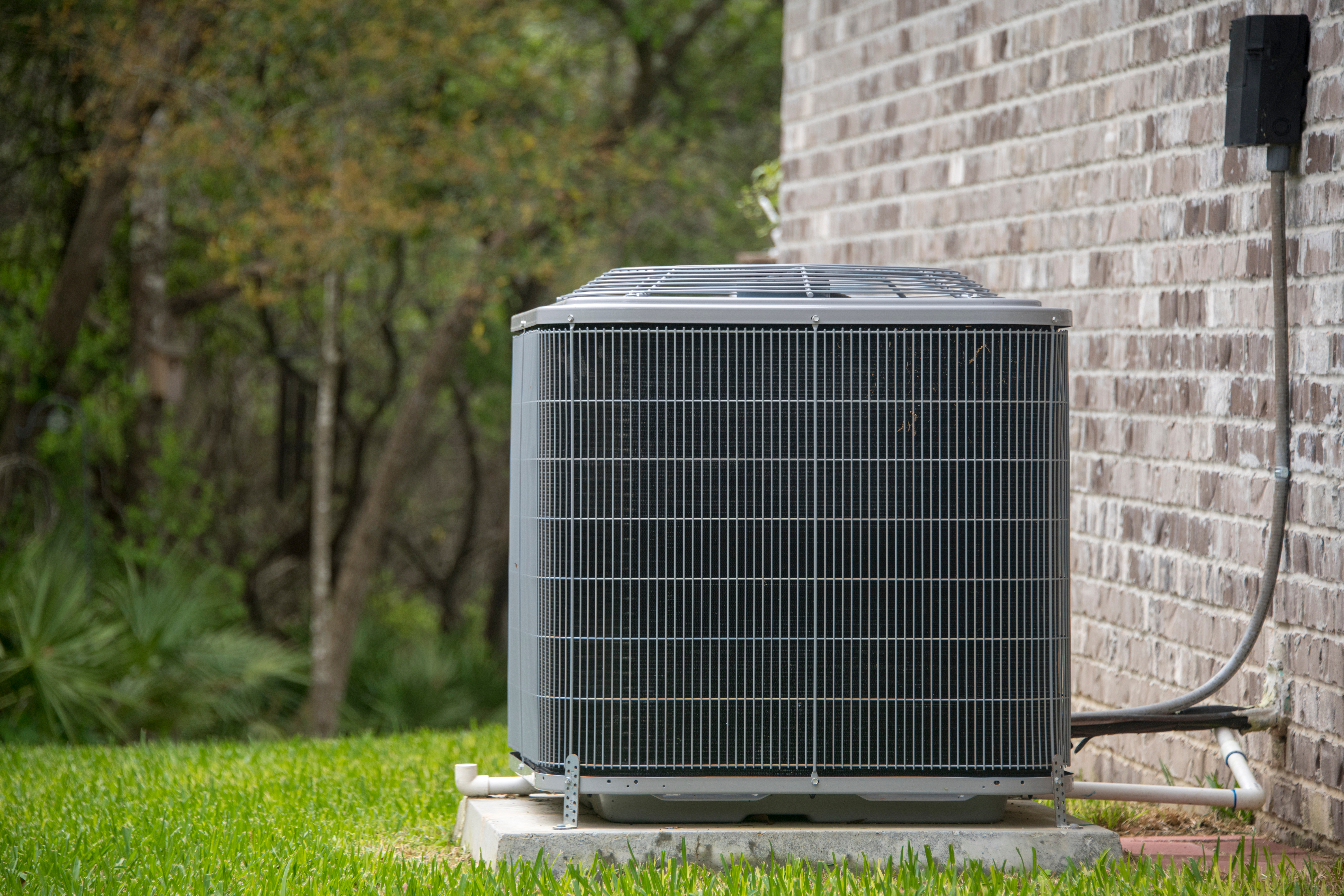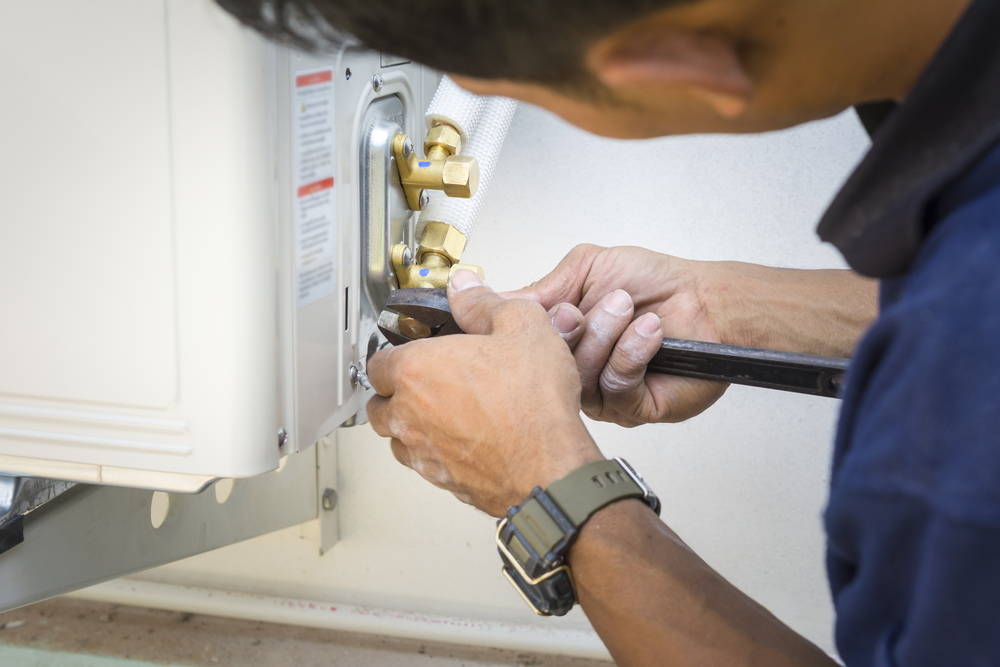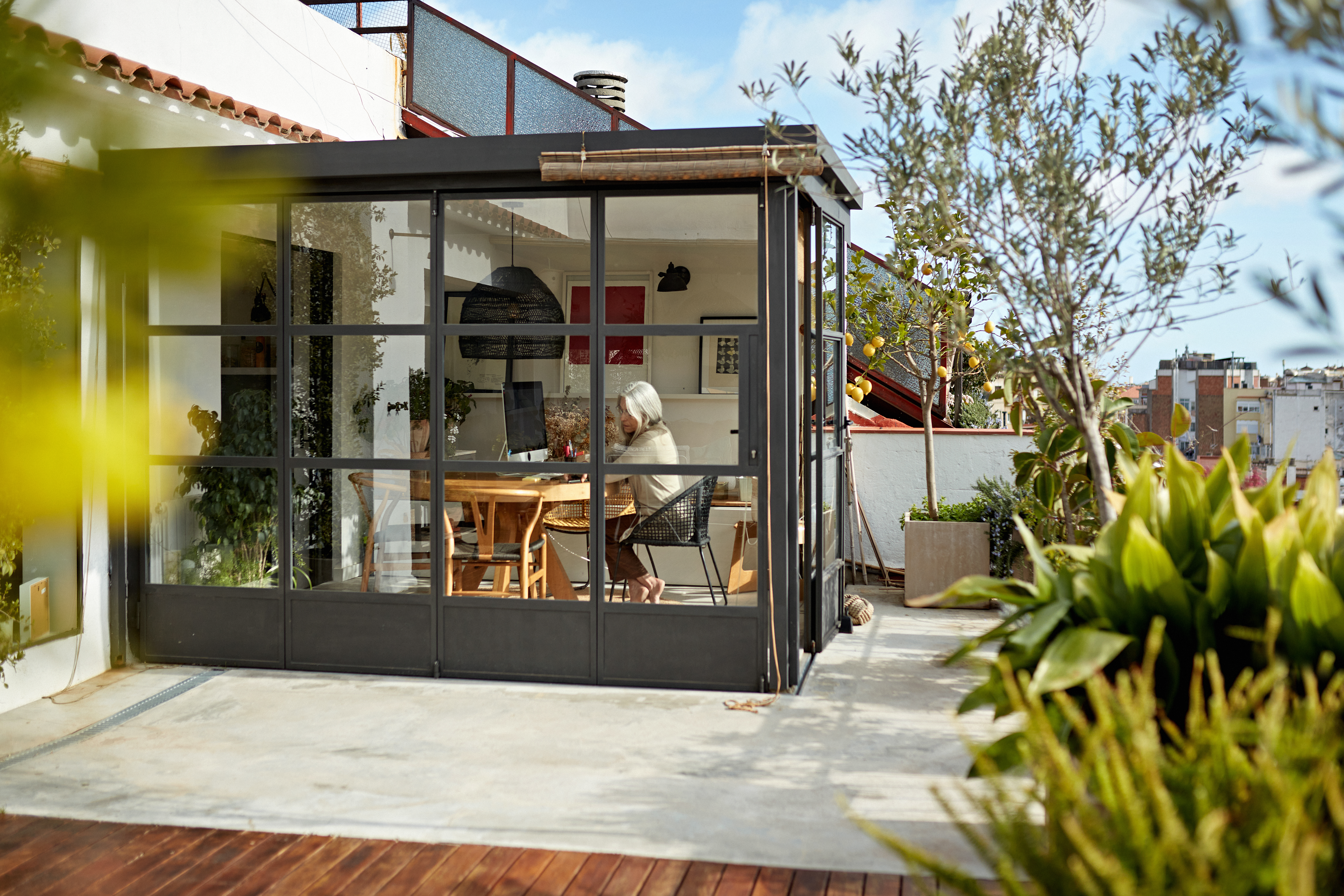How Long Do HVAC Systems Last?

HVAC stands for heating, ventilation, and air conditioning — it’s the system that provides heating and cooling to any building. Basically, your HVAC system enables your home to stay at comfortable temperatures all year long. An HVAC system uses air from the outside to provide high-quality, regulated air inside. But in order to maintain that perfectly controlled temperature, you need to replace your HVAC system when necessary.
So, how long do HVAC systems last?
The expected lifespan of an HVAC system is anywhere from 10 to 20 years. Various internal and external factors can cause an HVAC system to deteriorate over time, so it’s important to take proper care of your system and monitor its performance so it can last as long as possible.
In this blog, we’ll go over everything you need to know, from how long the different types of HVAC systems last, to when to replace your HVAC system and how much it costs. Keep reading to see the answers to your most pressing questions.
How Long Does Each HVAC Component Last?
An HVAC system has several components: An air conditioner, furnace and boiler, heat pump, water heater, and thermostat. Each component has a different lifespan, which we’ll explain.
Air Conditioners
Central air conditioners is a cooling system that moves cool air around your home with supply and return ducts. Often located on the walls, floors, and ceiling, these ducts carry cool air from the air conditioning unit to the home.
There are two different types of air conditioners you can have in your home: a split-system unit or a packaged unit. A split-system unit has both indoor and outdoor units. The indoor unit contains the indoor heat exchanger and blower and the outdoor unit contains the outdoor heat exchanger, fan, and compressor.
How long do air conditioners usually last? For the most part, air conditioners will last between 15 and 20 years. However, air conditioners in warmer climates will likely have a shorter lifespan than air conditioners in dry, cool climates. You should also aim to schedule AC maintenance about twice a year if possible.
Furnaces & Boilers
A furnace is a unit that heats your home. It blows heated air through ducts to the various rooms in your home. A furnace can be powered by electricity, natural gas, or propane.
A boiler also heats your home, but it uses warm water instead of warm air. It’s also typically powered by natural gas, oil, or electricity.
Average lifespan with regular maintenance, a gas furnace can last for over 20 years. You should only replace your furnace when the heat exchanger begins to leak. Oil furnaces have a shorter lifespan of around 10 to 15 years.
Boilers typically last longer than furnaces. A boiler can last for anywhere from 20 to 35 years. A boiler will only need replacing when the heat exchanger begins to leak.
Heat Pumps
A heat pump is a system that can either warm or cool your home. A heat pump works by transferring thermal energy from a cooler space to a warmer space using the refrigeration cycle. A heat pump is installed outside your home.
Heat pumps can last anywhere from 10 to 20 years, but this depends on how frequently it’s used. Most heat pumps have a lifespan of 15 years. Heats pumps tend to be used more frequently, since they serve both heating and cooling purposes. Like air conditioners, heat pumps tend to have shorter lifespans in warmer areas.
Water Heaters
A water heater has the job of heating the water in your home that’s used for showering, washing your hands, cooking, and cleaning. It takes cold water from a water supply pump and heats it up.
There are two types of water heaters: tanked and tankless water heaters. A tanked water heater warms water through either a gas burner or electric heating rods inside the tank. A tankless water heater warms up the water immediately, rather than keeping it stored in the tank.
A tankless water heater can last up to 20 years, but this mostly depends on the water quality where you live. Electric or gas water heaters don’t have nearly as long of a life expectancy, as they typically last around 10 years.
Thermostats
A thermostat is a device that detects temperature changes in order to keep the temperature in a designed area at a desired setpoint. Basically, your thermostat is what you use to warm or cool your home depending on your personal preferences.
Thermostats can last up to 25 years. However, with the recent upgrades in thermostats, it’s more likely that you’ll have to get your thermostat replaced due to its age, rather than it breaking down.
Smart thermostats are Wi-Fi capable that can automatically adjust the temperature and monitor from your smartphone. Some devices even have energy star ratings that can enter low-power standby mode when inactive.
So, how long do HVAC systems last? We’ll get into the details of the life expectancy of both residential and commercial HVAC systems below.

How Long Do Residential HVAC Systems Last?
How long do residential HVAC systems last? You can expect a residential HVAC system to last anywhere from 10 to 20 years. However, the lifespan depends on several factors, such as the type of system, maintenance and upkeep, and environment you live in.
How Long Do Commercial HVAC Systems Last?
The main differences between a residential and a commercial HVAC system are size and location. Commercial HVAC systems are much larger than residential HVAC systems because a commercial building needs more power and energy to heat and cool. Residential HVAC systems are usually located in the backyard or on the side of the house, while commercial HVAC systems are typically on the roof of a building.
There are 4 types of HVAC systems for commercial buildings: mini-split system, single split system, multi-split system, and VRF system. The type of system you choose will depend on the building’s size, type and energy efficiency.
How long do HVAC systems usually last? Like a residential HVAC system, a commercial HVAC system has a life expectancy of 10 to 15 years, but various factors can impact this, which we will get into below.
Factors That Affect How Long an HVAC System Lasts
Now you know the answer to “how long do HVAC systems last?,” which is 10 to 20 years — that’s a fairly large range. An HVAC’s lifespan will depend on various external factors, such as:
- HVAC Maintenance and upkeep: Proper maintenance helps ensure that your HVAC system will last as long as possible. Some maintenance you can do yourself, but you’ll have to hire a professional for other tasks. Just make sure you keep your outdoor HVAC unit clean by regularly removing debris and changing the air filters when necessary.
- Environment: The environment you live in will have a big impact on the life expectancy of your HVAC. HVAC systems in warm, coastal climates tend to have a shorter lifespan than systems in cool, dry areas due to the weather toll and demands on the system.
- Quality of installation: In order for your HVAC system to reach its full lifespan, it should be installed by an experienced HVAC professional. A professional will take steps to ensure that everything is properly placed and sealed so you don’t come across issues later down the line.

How Do You Know When It’s Time to Replace an HVAC System?
So, you have a general idea of how long an HVAC could last, but how do you actually know when it’s time to replace your HVAC system?
There are different signs that indicate it’s time to replace or upgrade your HVAC system, such as:
- Your utility bills are increasing inexplicably: If you notice that your energy bills are significantly higher one month than they were the last, it might be time to replace your HVAC system. With age, heating and cooling efficiency tend to decline.
- The temperatures in your home keep fluctuating: If you’re finding it hard to keep the temperature inside your home consistent, it could be stemming from system damage. Inconsistent temperatures signify that your air conditioner cannot supply the proper amount of air through your home.
- Repairs are getting expensive: If repair costs are starting to pile up, it’s probably time for a new system. Replacing your HVAC system will save you more money than constant repairs.
- There are unusual smells and sounds: Mold can make your HVAC system smell, which is a sign that it’s time to be replaced. An HVAC should also be relatively quiet, so if you hear unusual sounds like grinding and squealing, you should look into getting a new one.
- Your AC system is more than 10 years old: The U.S. Department of Energy recommends that you replace your AC system every 10 years. Outdated AC systems use a refrigerant called R-22, which is harmful to the environment. So, replacing your AC system isn’t just better for your home, it’s also an eco-friendly improvement.
How Much Does It Cost to Replace Your HVAC System?
The cost of replacing your HVAC system depends on several factors, like the type of system you want to buy, the price of the contractor you hire for installation, the equipment size, SEER rating, and more.
If it’s time to replace your HVAC system, but you’re struggling with the costs, consider PACE financing. PACE financing will help cover the up-front costs associated with buying a new HVAC system. PACE is a financing option that can be used for homeowners who are making energy-efficient home upgrades, like installing a new HVAC system.
PACE can help you with HVAC financing so that you’re able to install a new system in your home. With PACE, you can use the equity in your home to replace your HVAC system today, and pay for the system over time with a low-interest rate.
Upgrade Your HVAC System with Ygrene
So, in summary, let’s review — how long do HVAC systems last? HVAC systems are expected to last between 10 and 20 years. It’s important to maintain proper upkeep of your system and replace it when necessary, for the sake of your home’s air quality and carbon footprint. If you’re having problems with your HVAC system, you can also check out our HVAC troubleshooting guide so that you can diagnose and address the issues as quickly as possible.
PACE financing makes upgrading or replacing HVAC systems possible for all homeowners. If you’re in need of a new system but don’t have the funds to do so, Ygrene is here to help. Apply for PACE financing to see if you qualify so you can restore high-quality air and comfortable temperatures to your home in no time.




